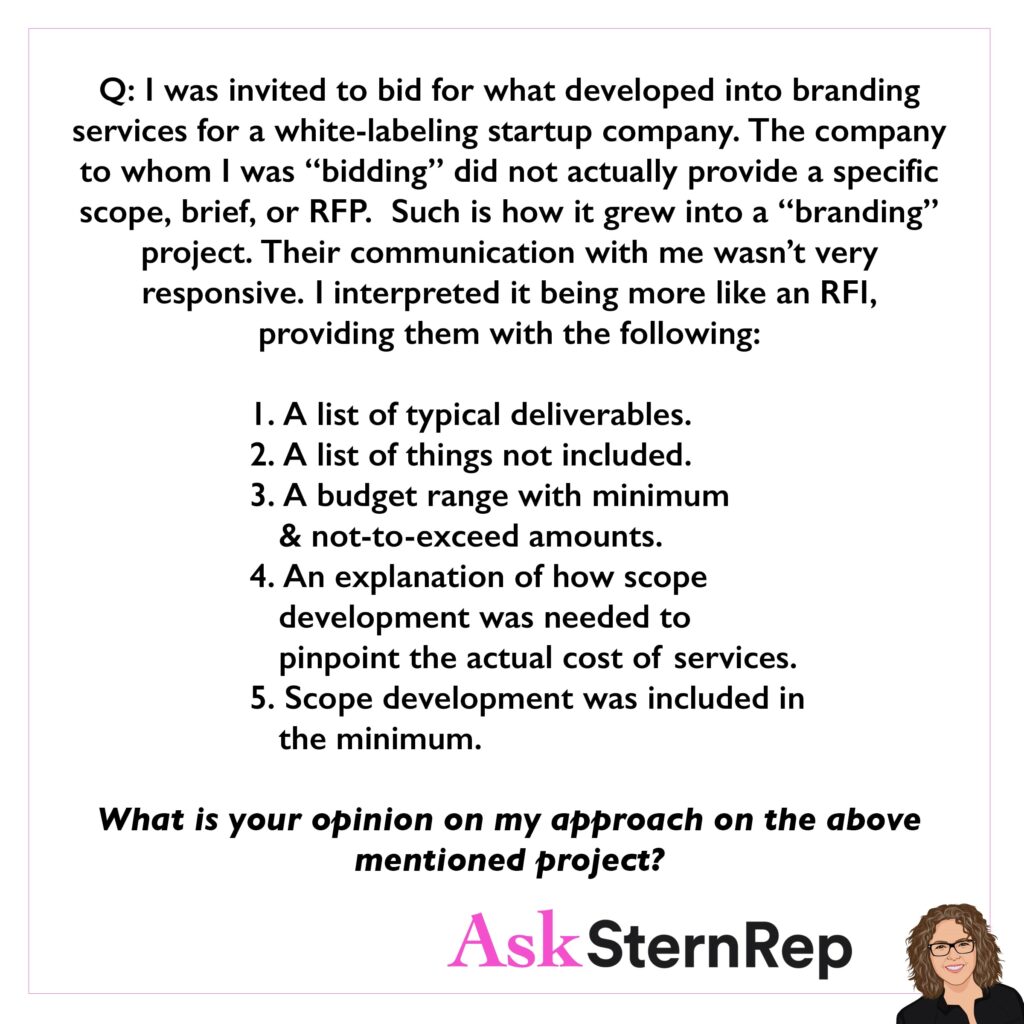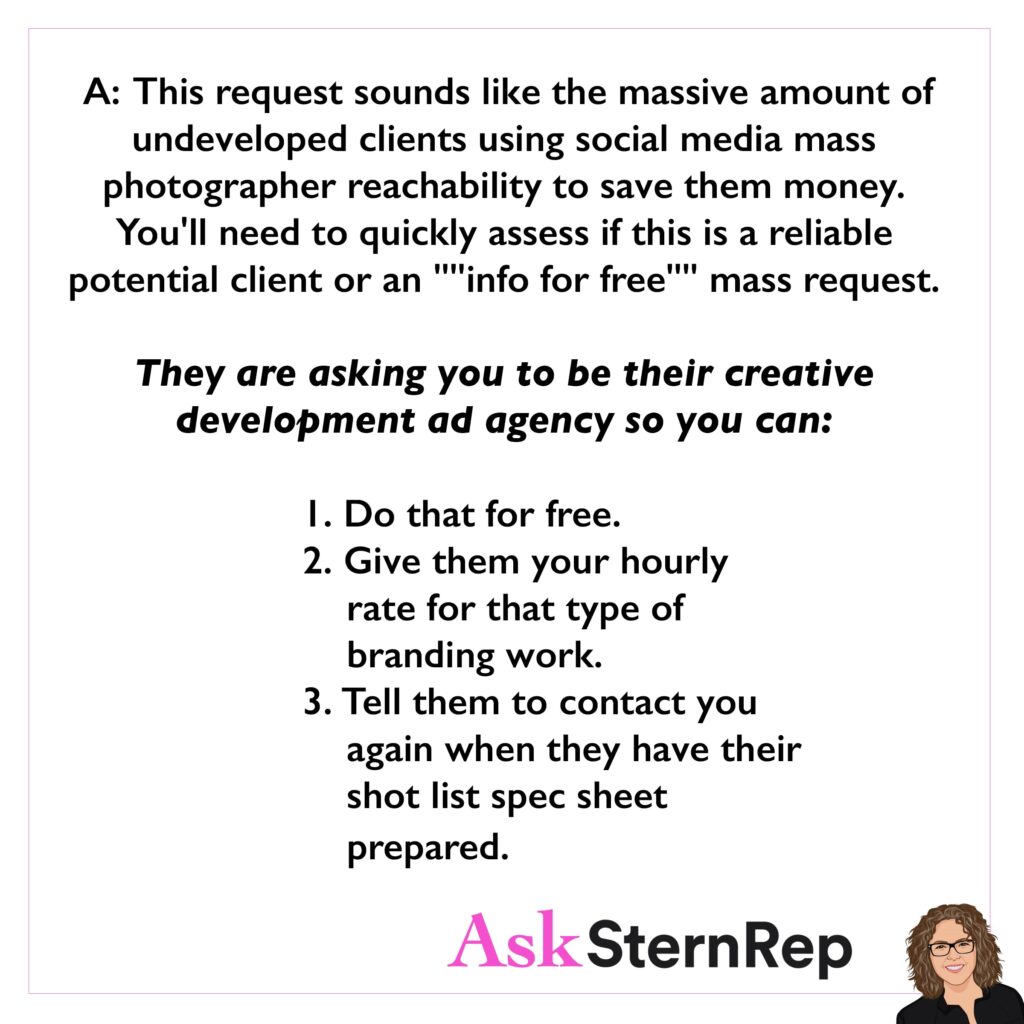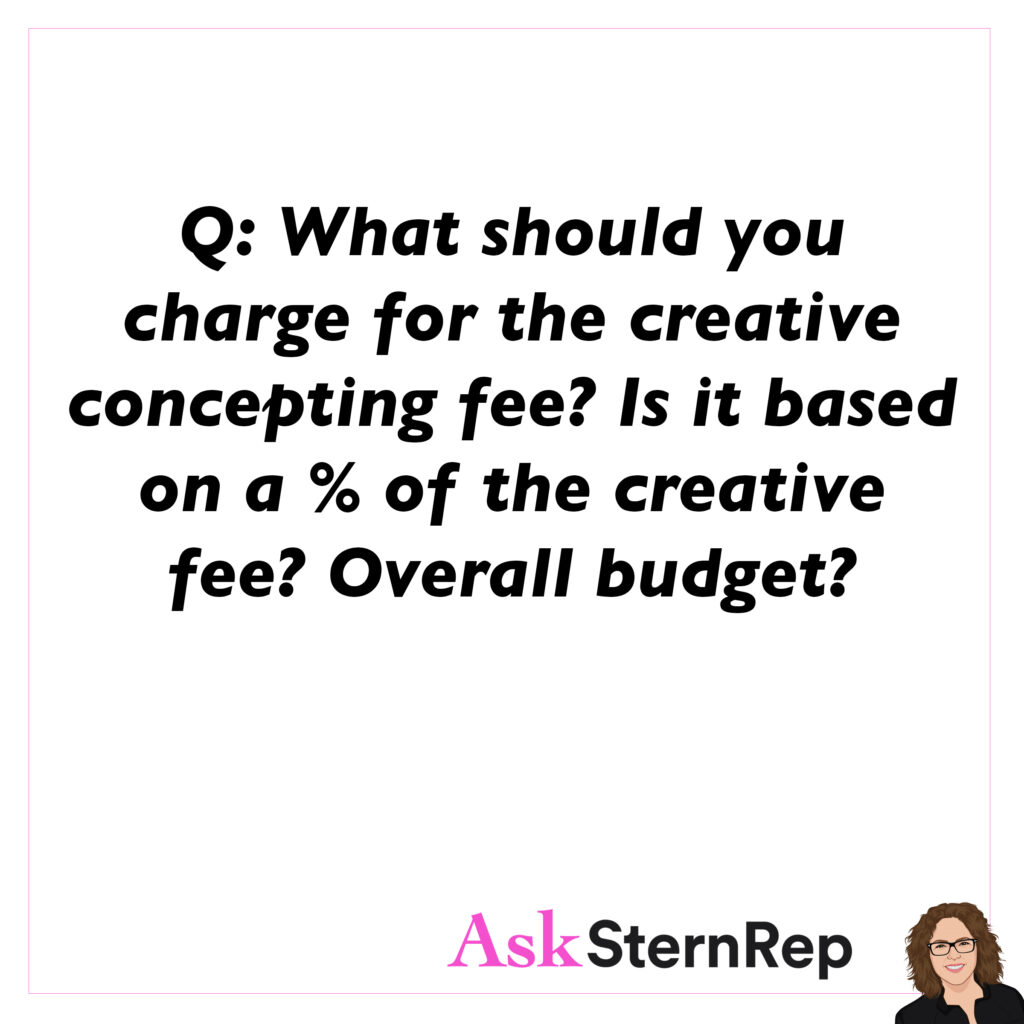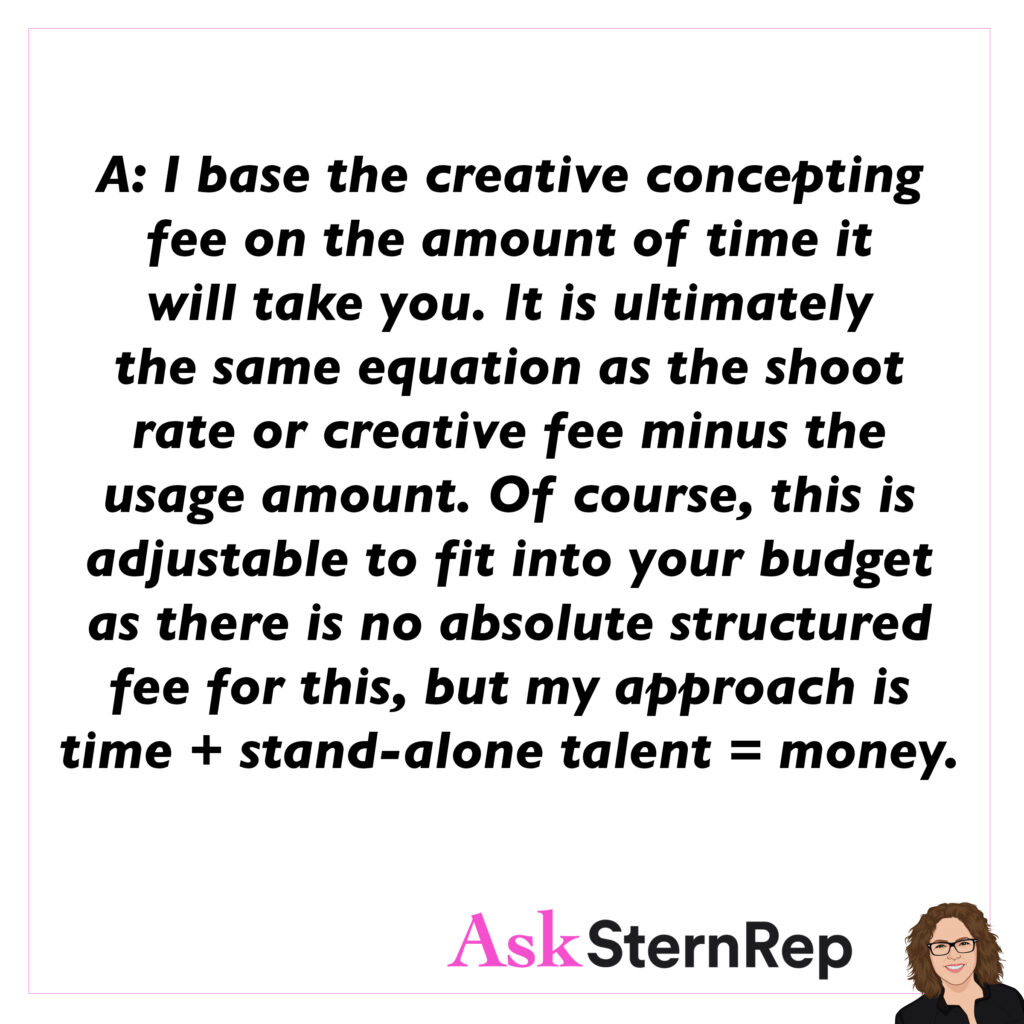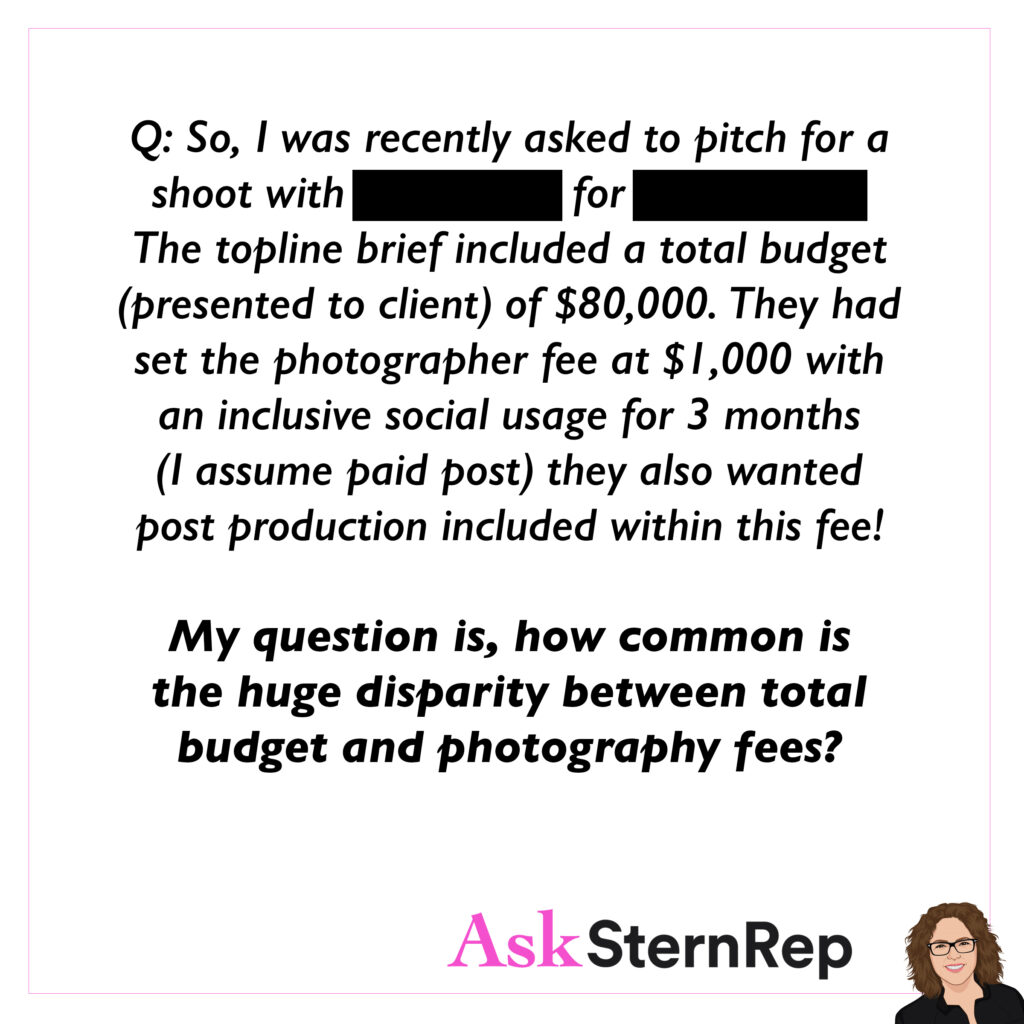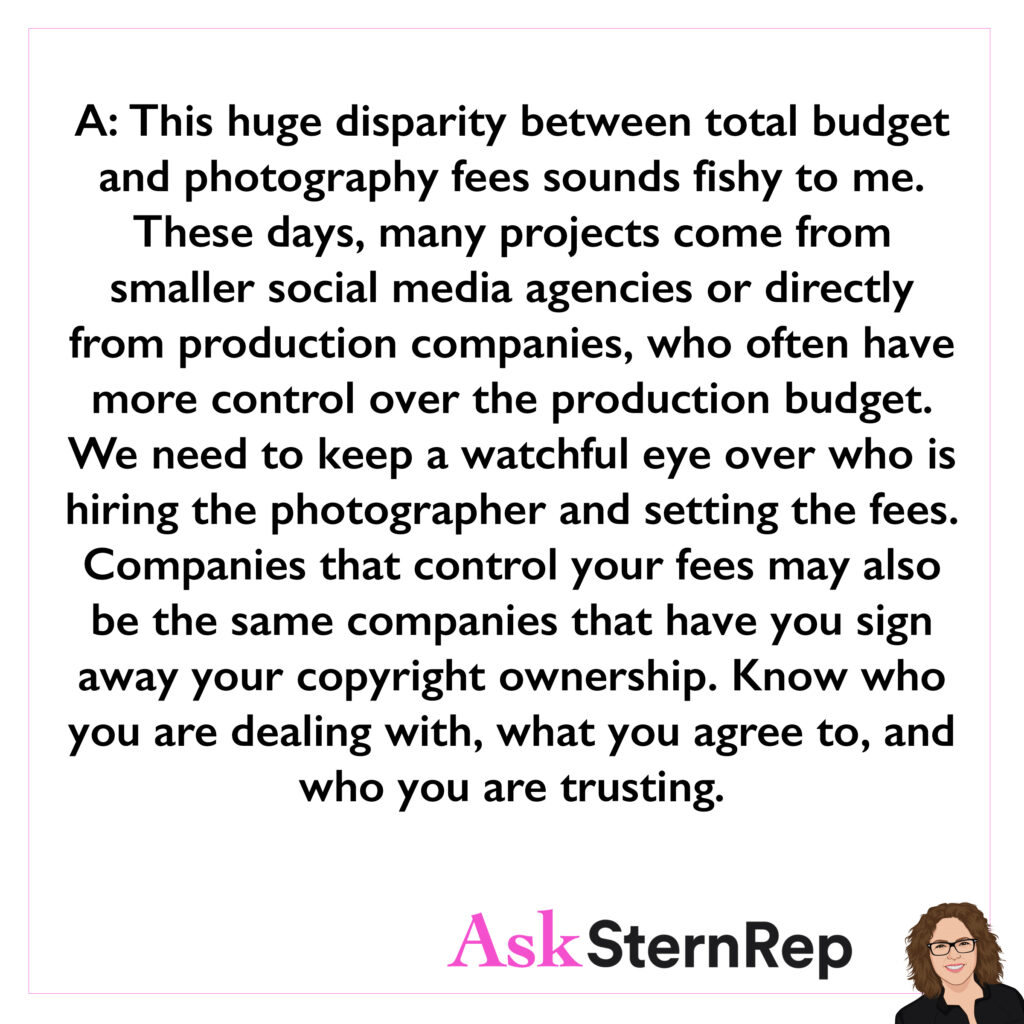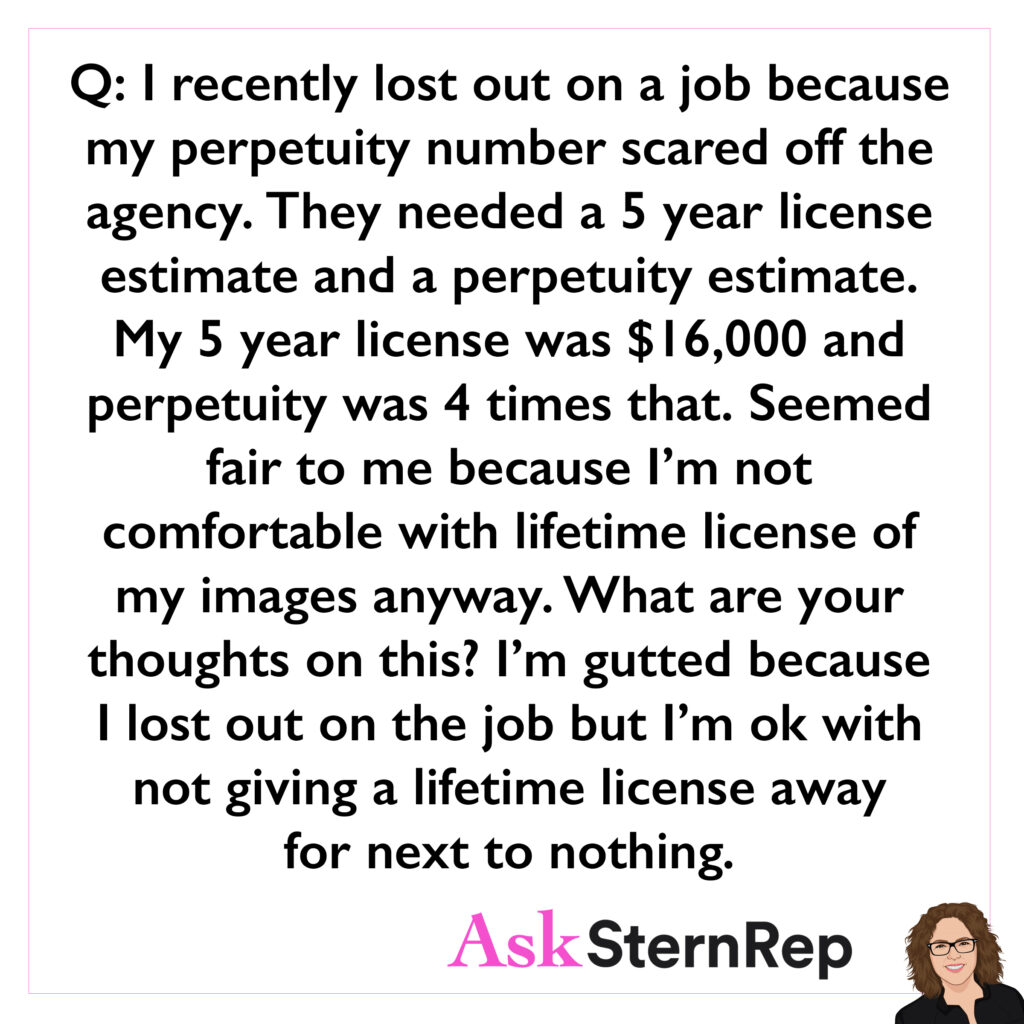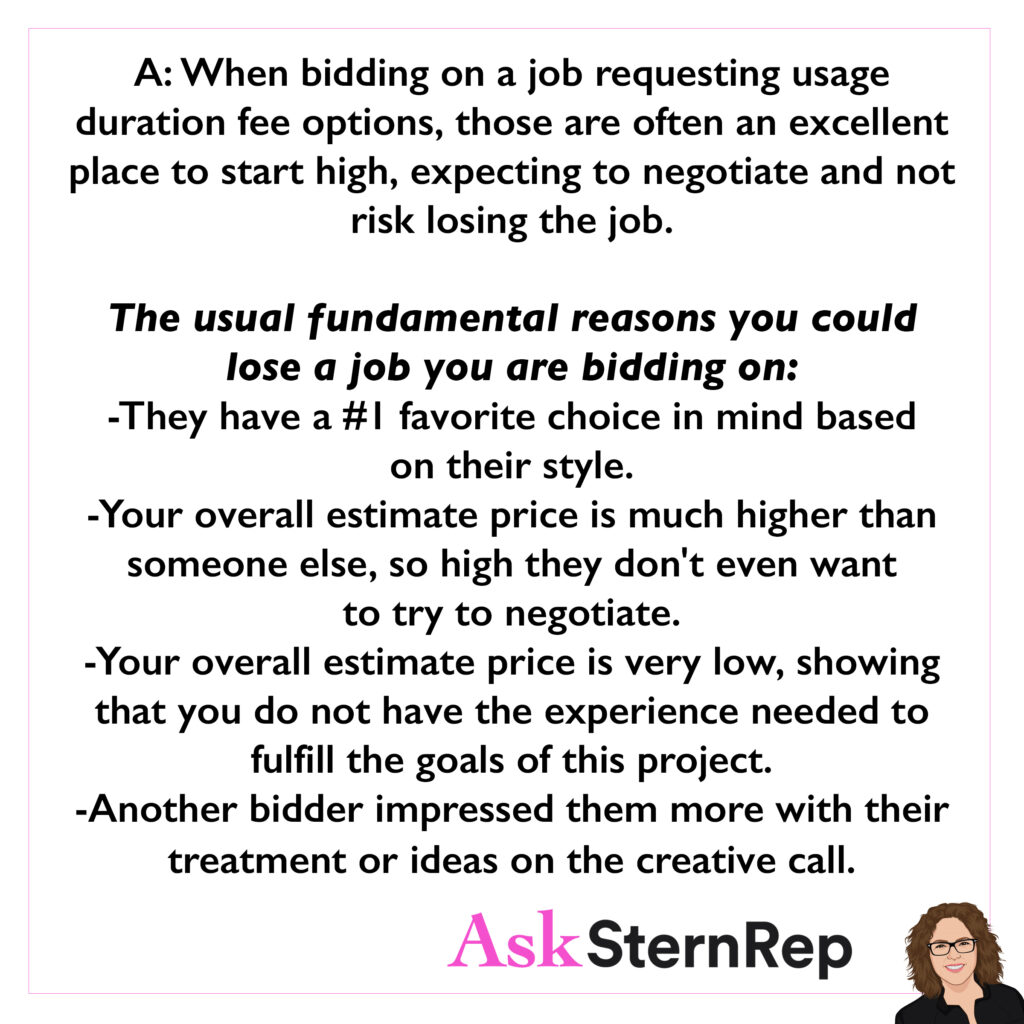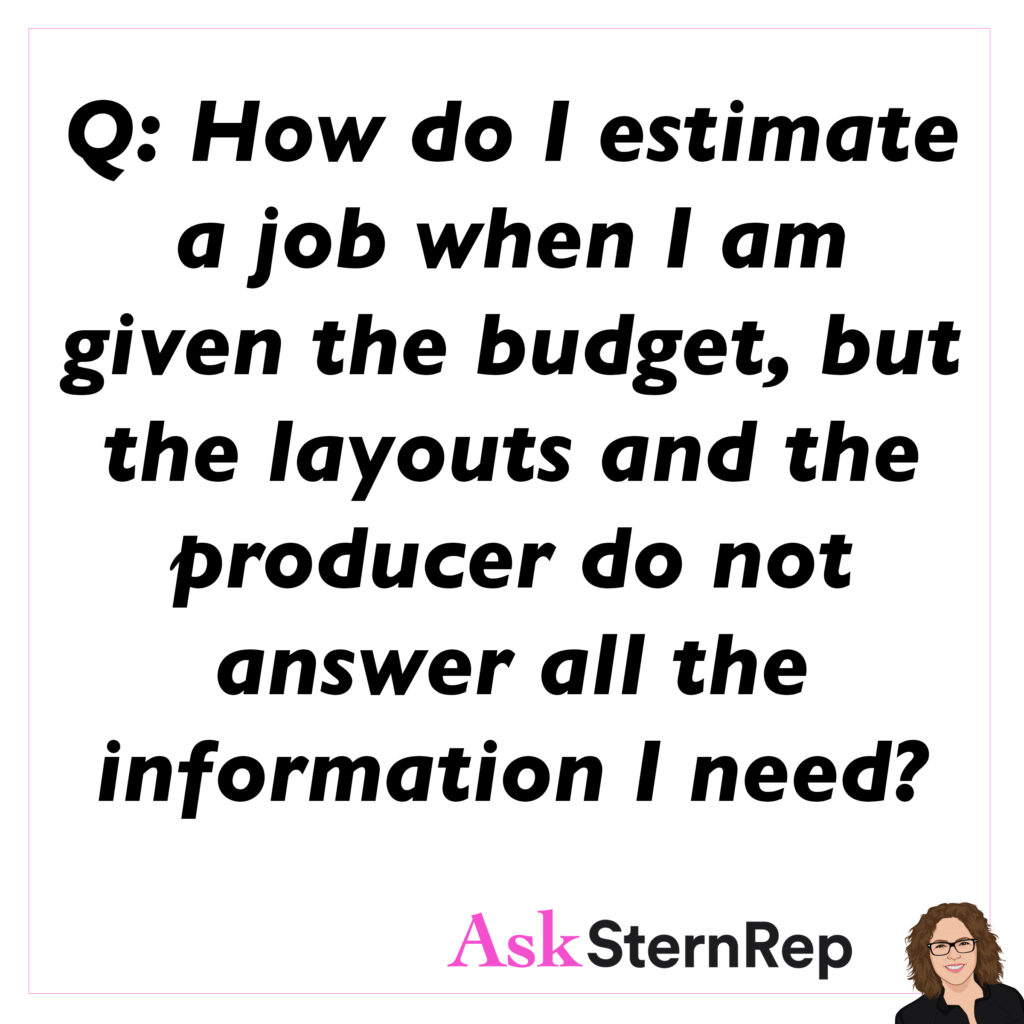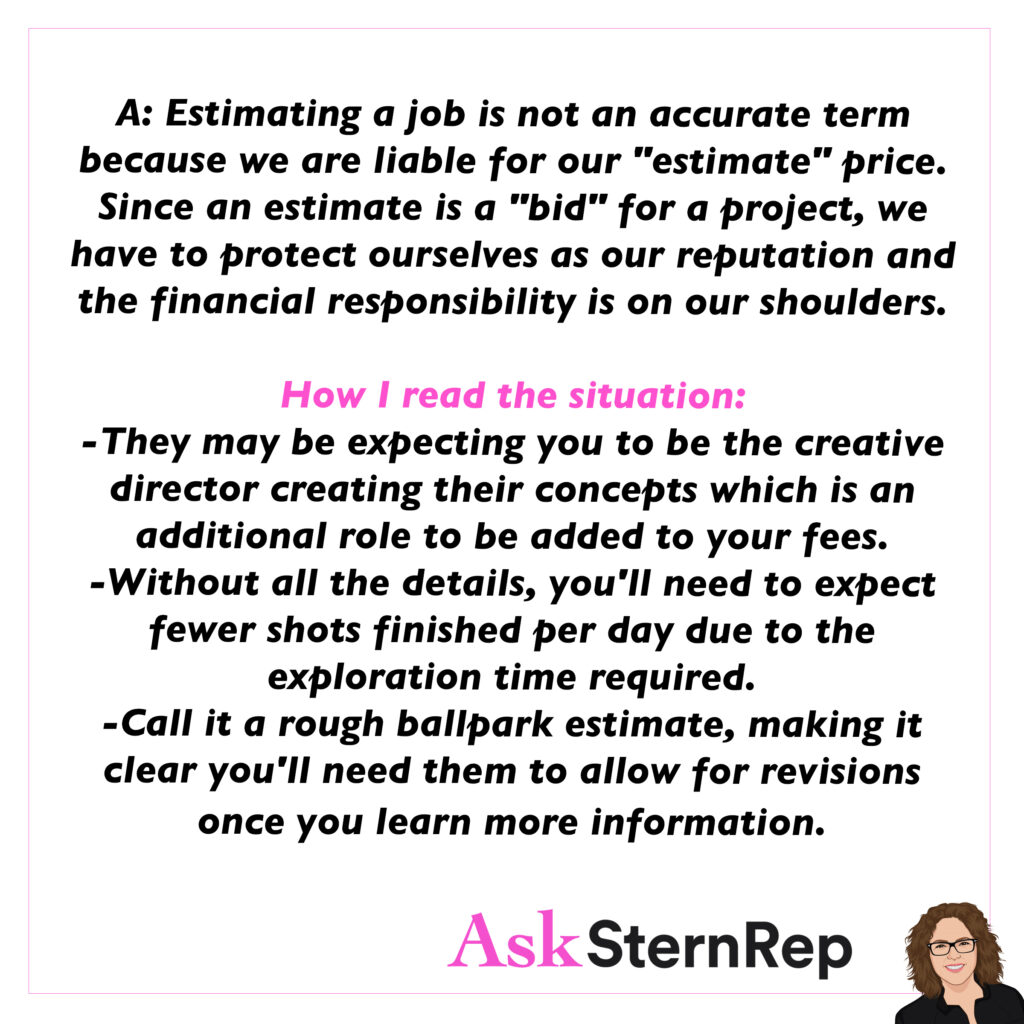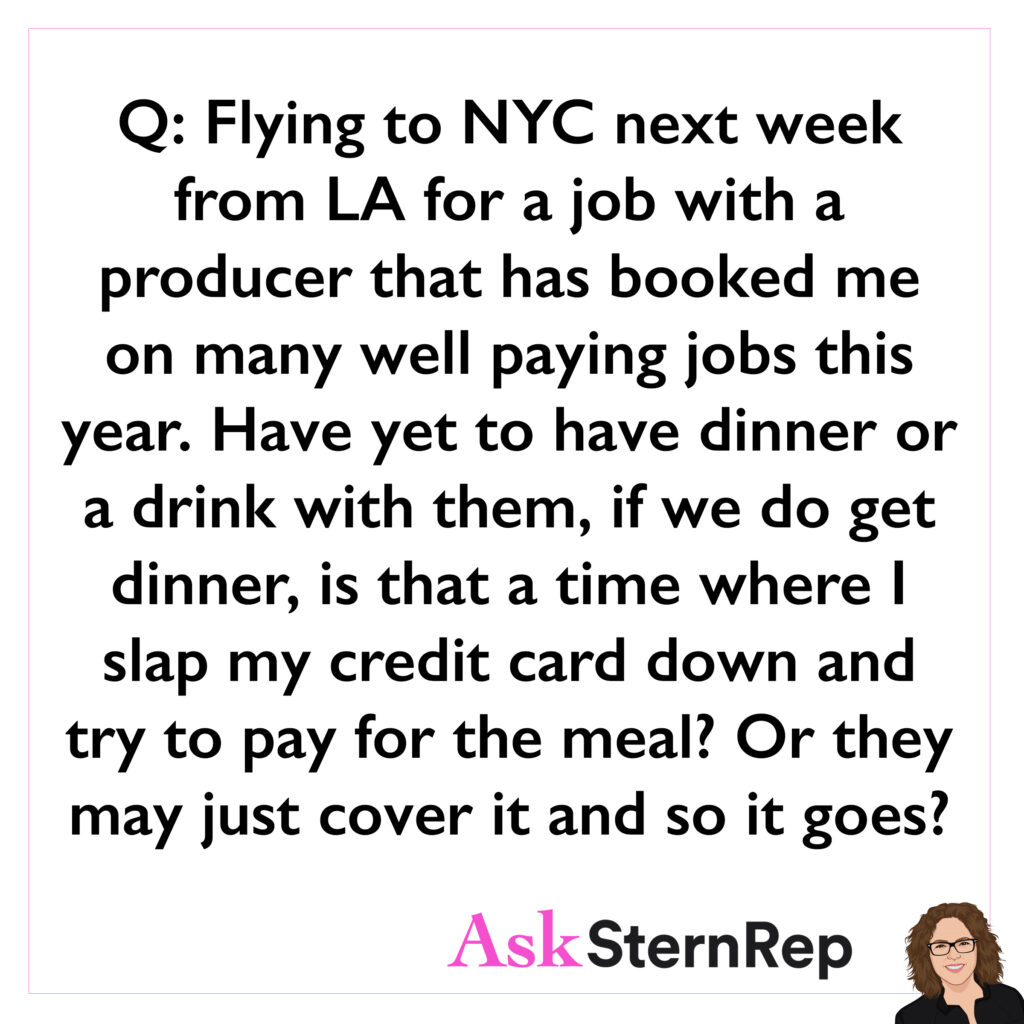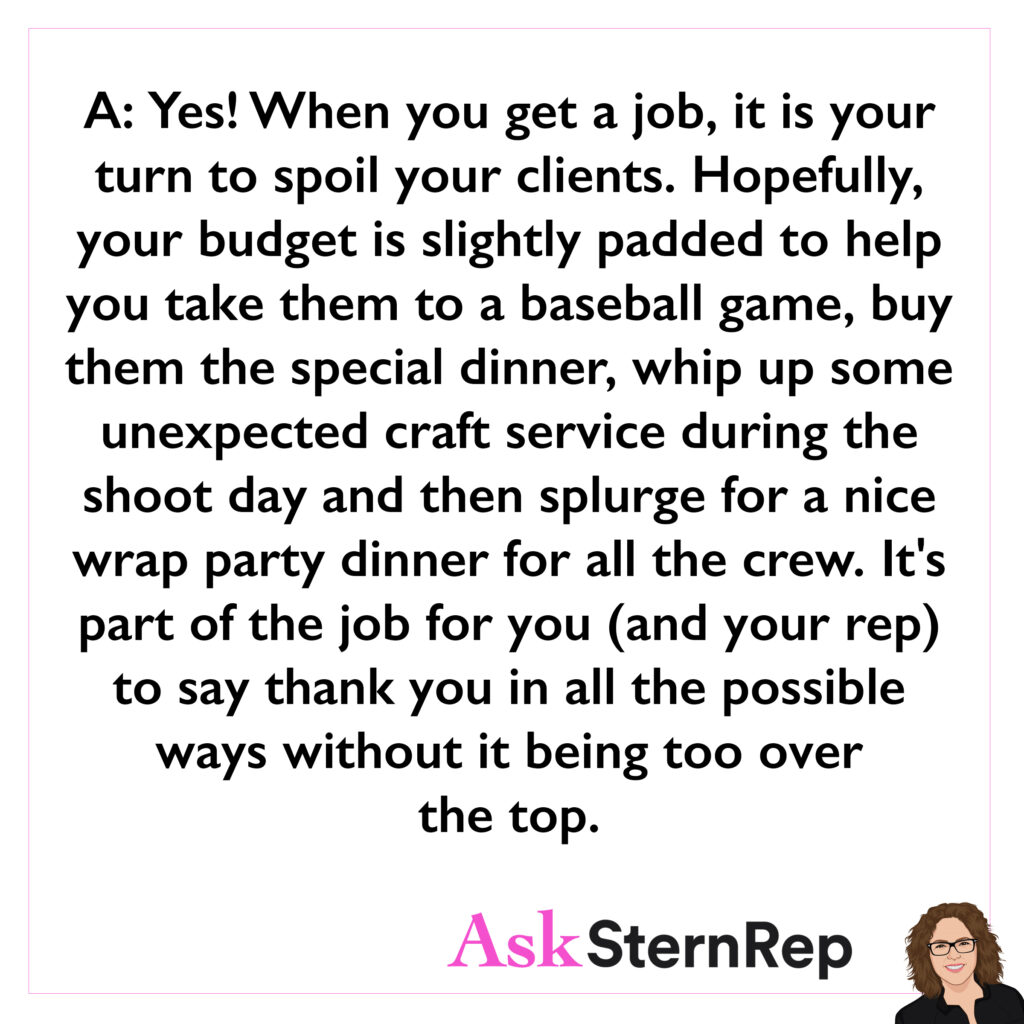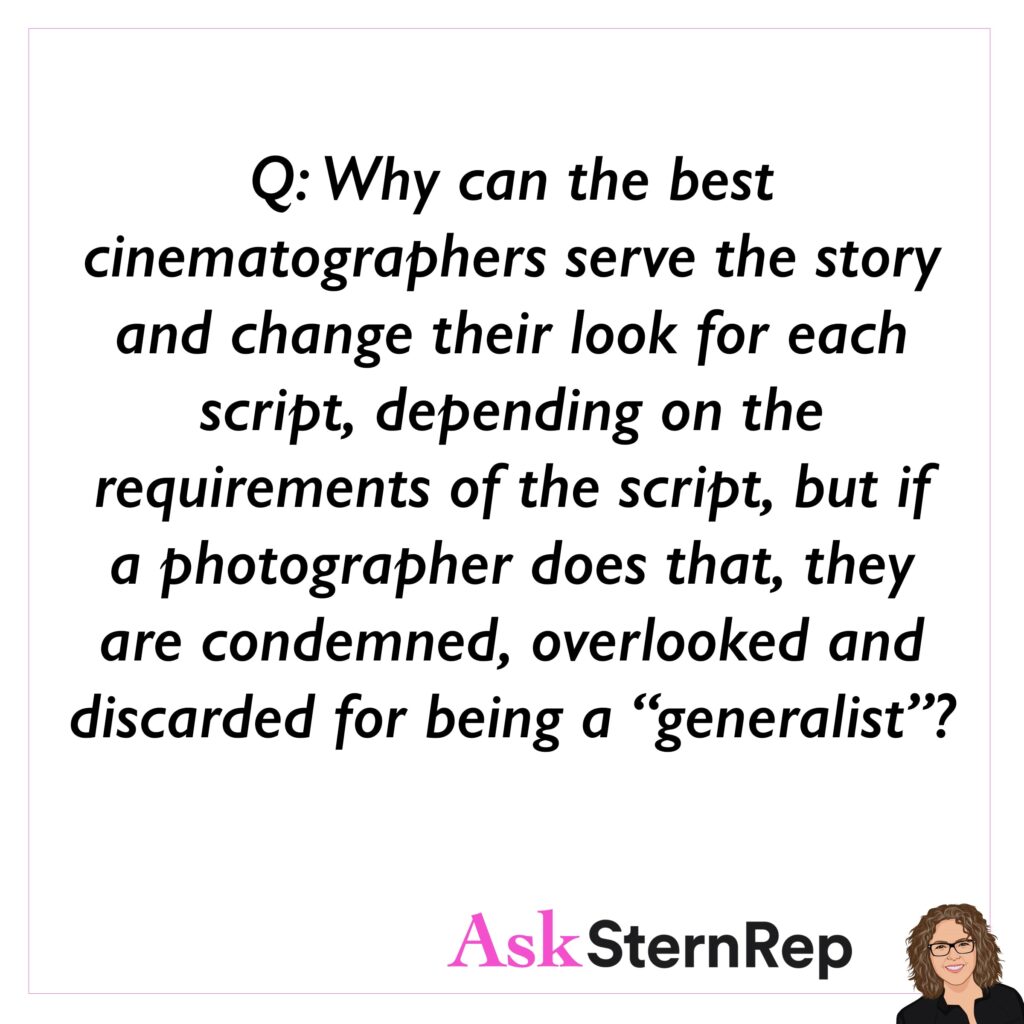
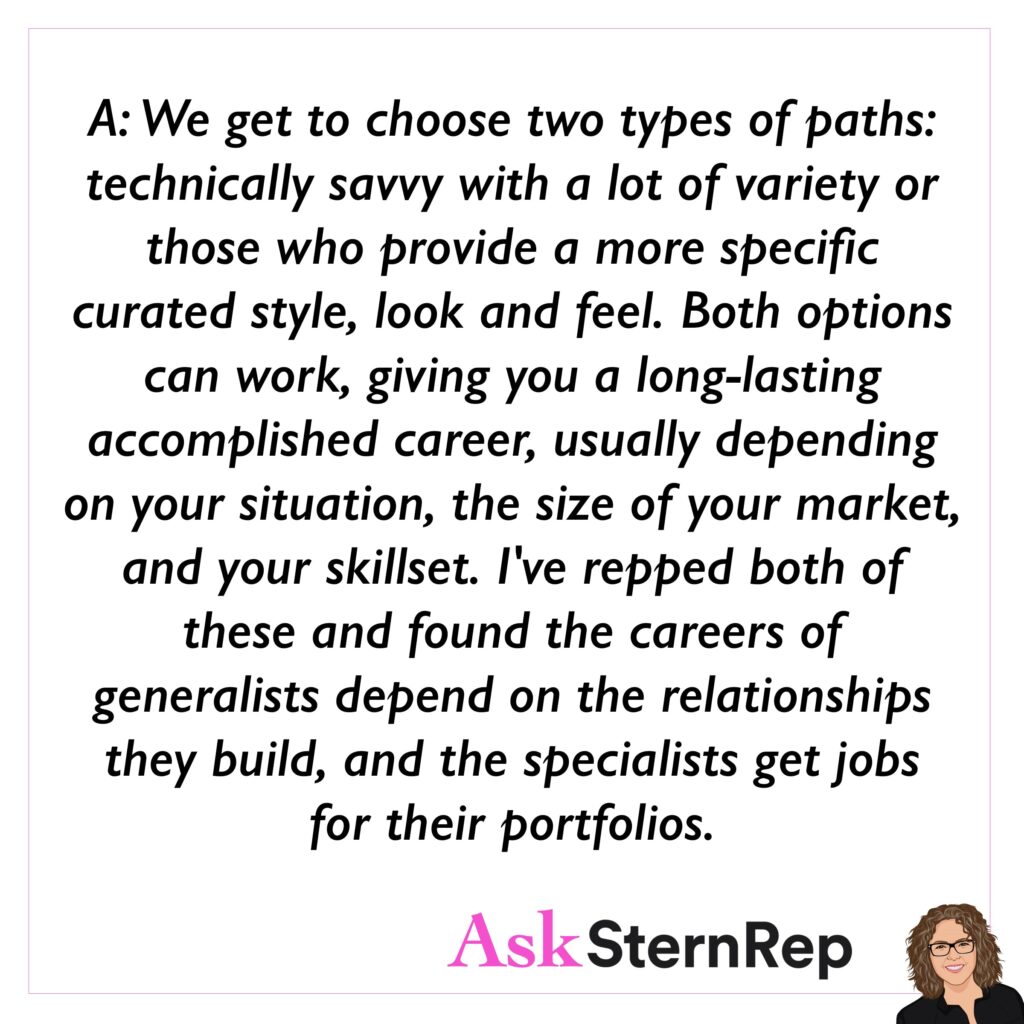
Q:
Why can the best cinematographers serve the story and change their look for each script, depending on the requirements of the script, but if a photographer does that, they are condemned, overlooked and discarded for being a “generalist?”
A:
We get to choose two types of paths: technically savvy with a lot of variety or those who provide a more specific curated style, look and feel. Both options can work, giving you a long-lasting accomplished career, usually depending on your situation, the size of your market, and your skillset. I’ve repped both of these and found the careers of generalists depend on the relationships they build, and the specialists get jobs for their portfolios.

